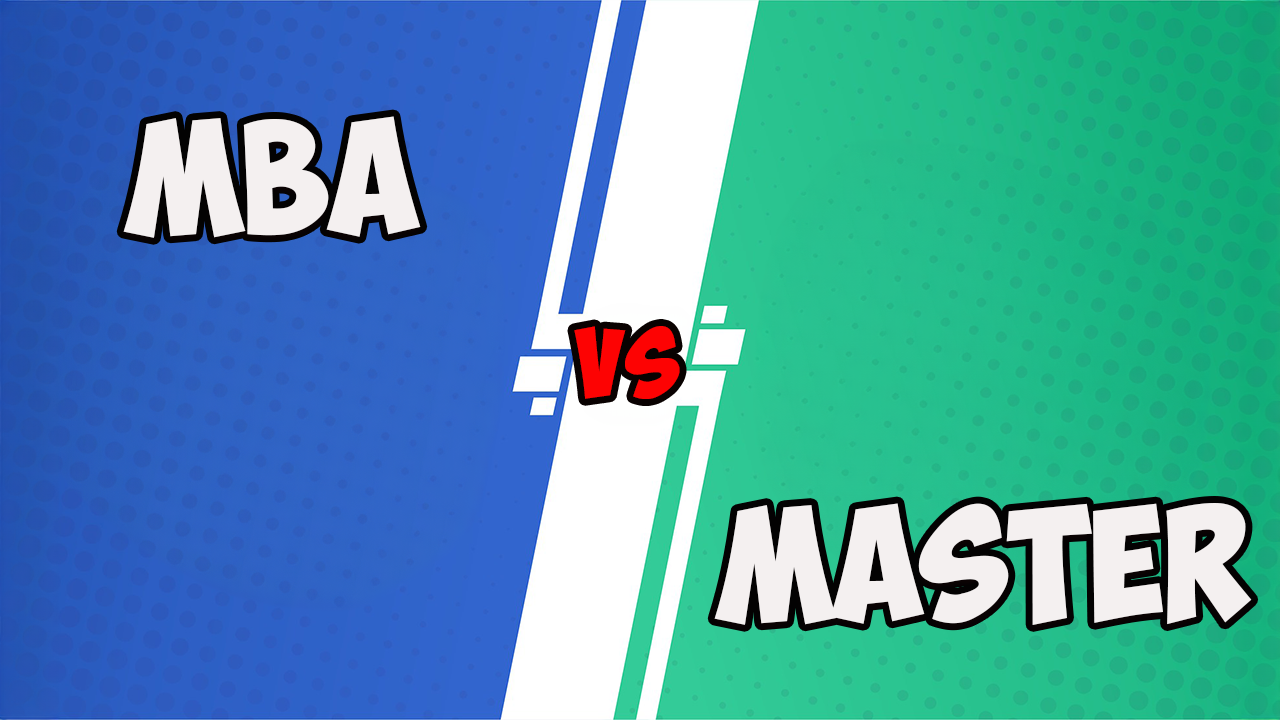
In today's educational landscape, many students are faced with the decision of whether to pursue a traditional Master's degree or an MBA (Master of Business Administration). Both degrees offer different benefits. In this blog post, we highlight the key differences and show why an MBA can be a particularly valuable investment in your professional future.
The focus of the programs
A traditional Master's degree programme usually offers specialized training in a specific subject area. For example, you can specialize in finance, entrepreneurship or marketing. These specializations enable you to acquire in-depth knowledge in a specific area and thus prepare you specifically for a career in this field.
The MBA, on the other hand, opens doors to the world of management and corporate leadership. With its generalist approach, the MBA provides comprehensive business knowledge and management skills that are in demand in almost every industry and company size. The focus on practical relevance and leadership qualities therefore makes the THM MBA an invaluable tool for prospective managers.
Target groups and requirements
A key difference between the two degrees lies in the target group. A traditional Master's degree is often completed directly after a Bachelor's degree or after a short career break. It is aimed at students who wish to continue their academic career seamlessly and often have little or no professional experience.
The MBA, on the other hand, usually requires several years of professional experience, typically between three and five years. Our THM MBA actually only requires 17 months of professional experience - this requirement ensures that participants have already gained sound practical experience and can contribute this to the projects. This creates a dynamic and enriching learning environment that benefits greatly from mutual exchange. In addition, our THM MBA does not require a bachelor's degree in economics, which is why it can be particularly interesting for people from other segments.
Tuition fees and network
Tuition fees for MBA programs are generally higher than those for traditional Master's programs. However, this also reflects the immense added value that an MBA brings. MBA programs are often offered at well-known business schools that are known for their first-class education and extensive networks. A degree like the THM MBA opens doors to an exclusive network of professionals and executives worldwide. This network can provide you with valuable support and opportunities throughout your career. In particular, our THM alumni are still strongly networked even after the MBA.
A Master's programs, on the other hand, charge significantly lower tuition fees or none at all. Although these programs also offer high-quality education, they often lack the intensive networking that is typical for MBA graduates.
Conclusion
An MBA is more than just another academic degree. It is an investment in your professional future and provides you with the tools and networks you need to succeed in the business world. Whether you want to strengthen your leadership skills, explore new career paths or simply expand your knowledge, an MBA can give you all that and more.
If you are unsure which path is right for you, we offer no-obligation consultations on our website. Our team will be happy to provide you with more information about our THM MBA.
We look forward to supporting you on your career path!
